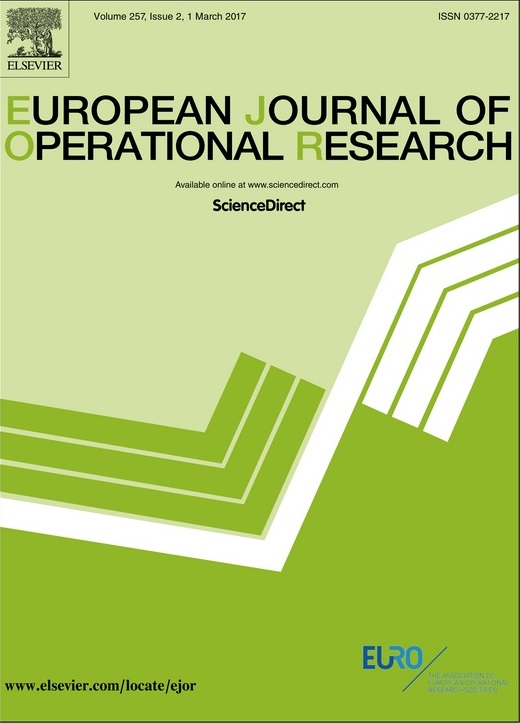EURO Prize for OR for the Common Good 2025 - Finalists
The two finalists of the 2025 EURO Prize for OR for the Common Good are:
Maryam Roudneshin, Amanda Sosa University College Dublin
Optimising the Biorefinery Supply Chain: A GIS-Based Multi-Objective Approach for Sustainable Bioenergy Production
The global push towards renewable energy sources is crucial for combating climate change and ensuring energy security. This research presents an innovative supply chain model that enables the efficient and sustainable utilization of agricultural waste for bioenergy production. This contributes to a circular economy by reducing waste, minimizing carbon emissions, and promoting energy independence. The methodology has been tested using real-world data from Ireland and can be adapted to other regions facing similar challenges in agricultural waste management and bioenergy planning. This study integrates multi-objective optimization, Geographic Information Systems (GIS), and economic modeling to develop a robust decision-support system for policymakers, farmers, and energy producers. By combining spatial data analysis with advanced mathematical modeling, an approach have been designed that balances economic viability, environmental sustainability, and logistical feasibility.
Sophie Parragh Johannes Kepler University Linz, Elisabeth Gaar, University of Augsburg, Xenia Haslinger Johannes Kepler University Linz
Driving Sustainability: How Operations Research Supports Zero-Emission Bus Fleet Decisions
The “avoid - shift - improve” framework and the European Clean Vehicles Directive set the path for improving the efficiency and ultimately decarbonizing the transport sector. While electric buses have already been adopted in several cities, regional bus lines pose additional challenges due to the potentially longer distances they have to travel.
In this work, we modeled and solved the multi-depot electric vehicle scheduling problem (MDEVSP), lexicographically minimizing the size of the bus fleet, the number of charging stops, and the total energy consumed, while maintaining a given timetable. We developed a graph representation, which allows partial charging without explicitly relying on time variables and derive 3-index and 2-index mixed-integer linear programming formulations for the MDEVSP. While the 3-index model can be solved by an off-the-shelf solver directly, the 2-index model relies on an exponential number of constraints, separated in a cutting plane fashion.
Our research has been carried out within the collaborative research project "Zero Emission Mobility Salzburg (ZEMoS)" and provided decision support for the local public transport authority in the tendering of line-based contracts with zero-emission vehicles in two pilot regions in the country of Salzburg. The main decisions concerned the type of zero-emission technology and the size of the bus fleet. The first battery electric buses are now already in operation.
Our results were also used as input to total cost of ownership computations by one of our project partners, and they serve as the basis for solution approaches for the multiple line, heterogeneous fleet MDEVSP to evaluate bus concepts for entire pilot regions.

This work is licensed under a Creative Commons Attribution-ShareAlike 3.0 International License and the GNU Free Documentation License (unversioned, with no invariant sections, front-cover texts, or back-cover texts).



